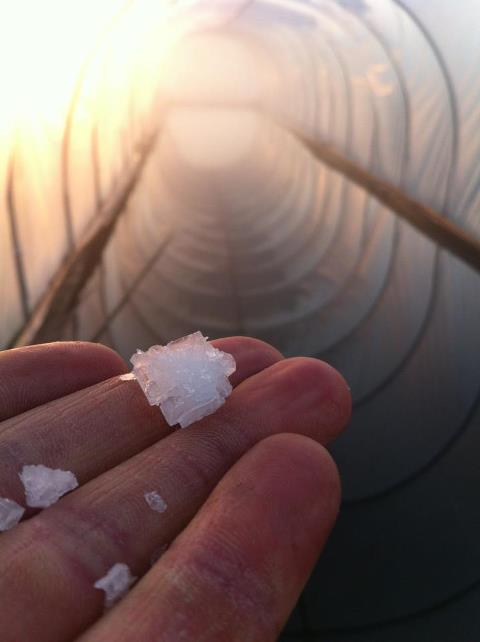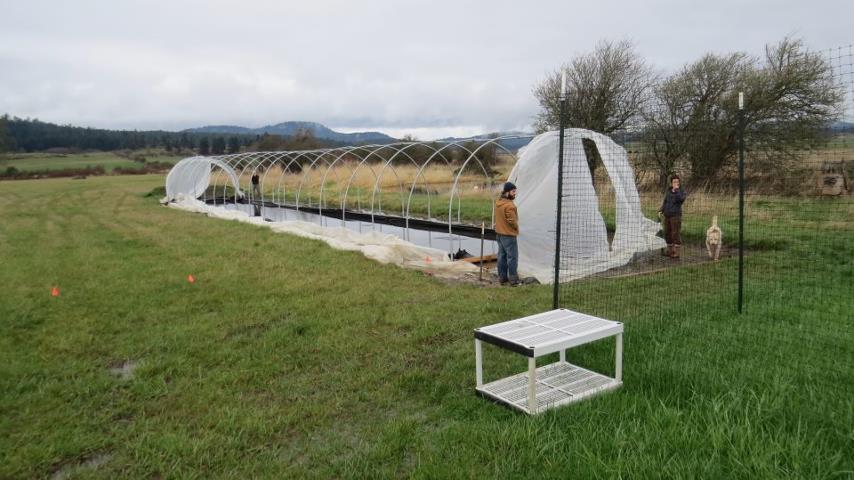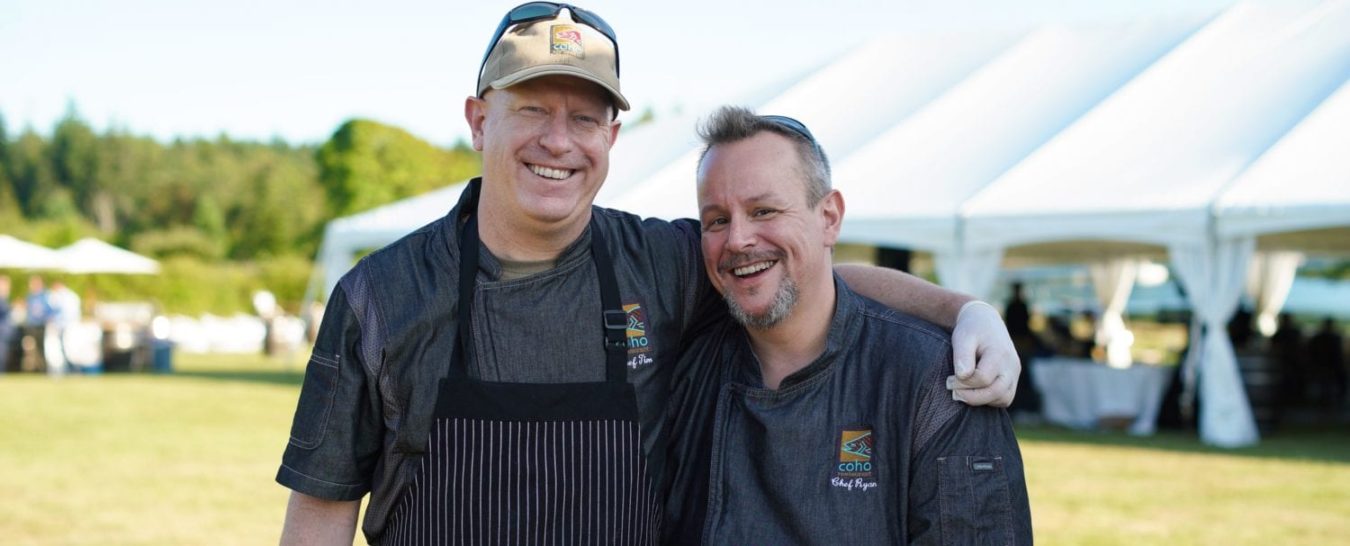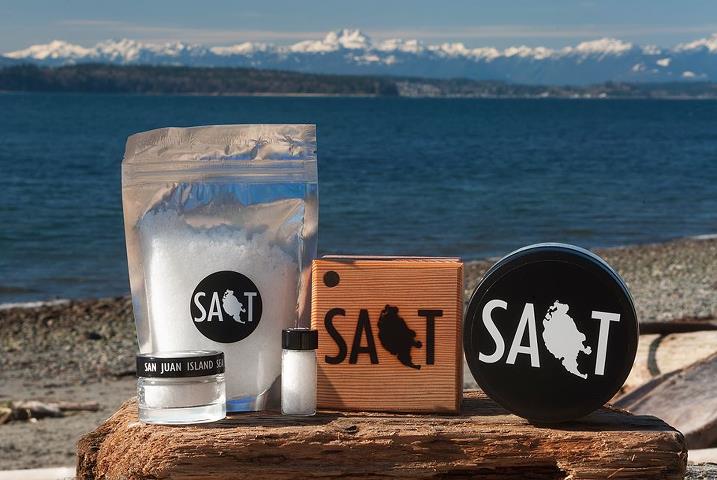 Salt. It is utterly simple, yet deceptively complex. Line up a collection of sea salts from different regions, and you’ll find a vast difference in flavors, and even variations in colors. Winemakers talk about “terroir,” how the environmental conditions, particularly soil and climate in which the grapes are grown, give the wine their unique flavor and aroma. But sea salt, derived from evaporated sea water, also bears regional flavor differences.
Salt. It is utterly simple, yet deceptively complex. Line up a collection of sea salts from different regions, and you’ll find a vast difference in flavors, and even variations in colors. Winemakers talk about “terroir,” how the environmental conditions, particularly soil and climate in which the grapes are grown, give the wine their unique flavor and aroma. But sea salt, derived from evaporated sea water, also bears regional flavor differences.
Even here on San Juan Island, sea salt pulled from the surrounding waters varies in flavor. The newest producer on the island, Brady Ryan, has come up with an intriguingly flavorful salt. His San Juan Island Sea Salt debuted early this year, the result of adapting his training while working with green houses on vegetable farms.
It started simply enough. Brady and his buddy Elliot Thomsen, both island-raised boys, are fervent “locavores” and wanted to have a truly local Thanksgiving. So they boiled some seawater, scraped up the resulting crusted salt, and used it for final finishing on their Thanksgiving meal. They also gave it as gifts at Christmas, and it was a huge hit. But it was a small scale process, energy and labor intensive; Brady wanted to go bigger.
He got his vision in June, when he realized he could build a small salt pond inside a green house. Then he decided to build a big pond that holds about 1500 gallons of seawater, with several unheated hoop houses, each about 12 x 90 feet, strung over the pond.  Water is pumped from the sea to a delivery truck, and from the truck to his pond, located on his parents’ farm in the San Juan Valley. Inside the green houses, the water dries naturally, without fans, only solar heat. But here’s the difference: unlike large scale commercial sea salt producers, he waits until the water is completely evaporated before harvesting. This is why it has such interesting flavor; the minerals are concentrated and the taste is broadened, almost wild, briny yet sophisticated. The irregular crystals and dry moisture content make it ideal to use as a finishing salt at the table. In fact, Brady contends that if you cut out processed foods, and liberally salt food you prepare yourself, you’ll still be well under the salt intake of most Americans.
Water is pumped from the sea to a delivery truck, and from the truck to his pond, located on his parents’ farm in the San Juan Valley. Inside the green houses, the water dries naturally, without fans, only solar heat. But here’s the difference: unlike large scale commercial sea salt producers, he waits until the water is completely evaporated before harvesting. This is why it has such interesting flavor; the minerals are concentrated and the taste is broadened, almost wild, briny yet sophisticated. The irregular crystals and dry moisture content make it ideal to use as a finishing salt at the table. In fact, Brady contends that if you cut out processed foods, and liberally salt food you prepare yourself, you’ll still be well under the salt intake of most Americans.
H is first harvest took about four weeks and yielded roughly 230 pounds, which he packed into jars adorned with a logo designed by another local friend. The salt is available at San Juan Food Coop, and soon to be on his website. You can reach Brady through his San Juan Island Sea Salt Facebook page, or brady@sanjuanislandseasalt.com.
is first harvest took about four weeks and yielded roughly 230 pounds, which he packed into jars adorned with a logo designed by another local friend. The salt is available at San Juan Food Coop, and soon to be on his website. You can reach Brady through his San Juan Island Sea Salt Facebook page, or brady@sanjuanislandseasalt.com.
On the jar it says “Cum grano salis,” which is Latin for “with a grain of salt.” That’s Brady’s reminder not to take anything too seriously; the salt is what it is.


